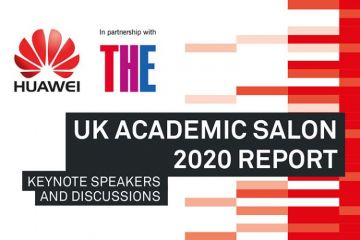The owner of the US’ biggest for-profit university fears it could face reputational and financial damage from an accreditation dispute that is already being used by a British union to attack the UK’s leading for- profit college.
The University of Phoenix, owned by the Apollo Group, has been told by US accrediting organisation the Higher Learning Commission that it is recommended for probation because the institution has “insufficient autonomy” from its owner. This would mean additional monitoring, including another “comprehensive evaluation visit” by the HLC.
In the UK, the news prompted the University and College Union to write to Vince Cable, the business secretary, with concerns about the application for university title being lodged by BPP University College, which is owned by Apollo Global, an Apollo Group subsidiary.
In the letter, the UCU urges Mr Cable to shelve BPP’s application for university title pending an investigation into its “relationship with its parent companies” and the resolution of Phoenix’s accreditation.
“At risk are both the interests of BPP students and the international credibility of the UK university title,” it says.
A report filed by Apollo Group to the US Securities and Exchange Commission spells out the consequences of probation for Phoenix along with Western International University, another Apollo subsidiary facing similar action.
Reputational damage from such a move may “negatively impact their ability to recruit and enrol students and to recruit and retain faculty and staff”, meaning “our business could be materially and adversely affected”, the report says.
The HLC board is expected to make its final decision in June about whether to enter Phoenix into a two-year probation period.
The university intends to “challenge and appeal” the probation recommendation, the firm says.
Mark Brenner, chief of staff at Apollo Group, told Times Higher Education: “From an academic standpoint…we were graded very highly.” However, the HLC “did express concern with governance”.
He argued that changes in recent years meant that while Phoenix’s board includes “a number of individuals from the Apollo Group leadership team”, the “chairman, vice-chairman and a majority of the directors are…independent with no other affiliation to Apollo Group”.
Accreditation for an institution, gained through peer review, means students can access US federal, and sometimes state, funding.
Last year’s Senate report into the for-profit higher education industry, led by Iowa Democrat Tom Harkin, criticised for-profits’ reliance on taxpayer funding. It argued that accreditation agencies had “struggled to effectively evaluate institutions driven by business principles that emphasize growth and revenue maximization rather than academic improvement or integrity”.
Mr Brenner said that even if Phoenix went into probation, it would continue to be accredited. But “for sure there would be an impact on reputation”, he added.
Peter Crisp, dean of BPP Law School, highlighted the different regulatory systems in the US and UK and said “comparisons are inappropriate at best, and quite unhelpful”.
He said BPP had separated academic and corporate governance in 2004, adding that “only quality providers with appropriate governance…get degree-awarding powers”, a status BPP gained in 2007.
Mr Crisp also accused the UCU of being “disingenuous” with regard to its letter to Mr Cable.
Register to continue
Why register?
- Registration is free and only takes a moment
- Once registered, you can read 3 articles a month
- Sign up for our newsletter
Subscribe
Or subscribe for unlimited access to:
- Unlimited access to news, views, insights & reviews
- Digital editions
- Digital access to THE’s university and college rankings analysis
Already registered or a current subscriber?








